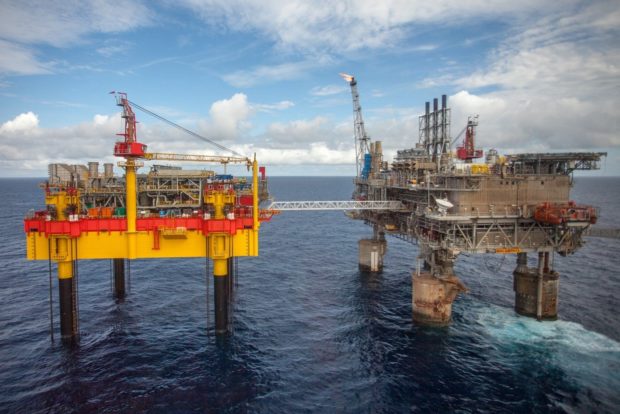The delivery of natural gas from the Malampaya offshore field to key power plants in Luzon resumed last Feb. 19, according to its operator.
In a statement, Prime Energy Resources Development (Prime Energy), a subsidiary of Razon-led Prime Infra, said the two-week maintenance work on the Malampaya system was successful, paving the way for resumption of supply.
Prime Infra and the other members of the SC 38 consortium—UC38LLC and state firm Philippine National Oil Company-Exploration Corp. (PNOC-EC)—successfully completed maintenance work on the Malampaya system from Feb 8 to 18, the statement said.
Energy Secretary Raphael P. M. Lotilla welcomed the completion of the Malampaya maintenance work, which is regularly carried out in the last 20 years but for the first time under an all-Filipino consortium.
The Department of Energy said the work was completed with a perfect safety record—zero accident—achieved through diligent planning and execution by the operator, Prime Energy, in coordination with the DOE.
Prior to the work, the DOE and Prime Energy conducted a series of dialogues with the stakeholder communities, local government units (LGUs) and other government agencies, particularly in the vicinity of the Onshore Gas Plant (OGP) in Batangas province.
This was to raise awareness about the work, especially flaring.
The Service Contract (SC) 38 Consortium tapped an international technical team to work with Filipinos involved in the maintenance mission.
Lotilla had said he looked forward to the further upgrade of technical capabilities locally and the energy supply base facilities of the Malampaya deep water gas-to-power project, which had already remitted $13 billion to the national government since inception.
Prime Infra president and CEO Guillaume Lucci said the consortium remained committed to ensure gas supply from the depleting Malampaya gas field.
“We’re here to stay, we’re here to invest, we’re here to increase dramatically the gas production with the extended term of the service contract and resource available and, more importantly, we are trying to make sure we produce the least cost to consumers,” he said at a recent energy forum.
The Malampaya project is one of the country’s most important power assets, as it produces natural gas for power plants in Batangas City that account for around 20% of the Philippines’ total electricity requirements. It began operations in 2001, with the consortium’s license for the project set to expire in 2024.
The SC38 consortium is seeking to extend the license to accelerate investments on the Malampaya gas field and improve the output of existing wells and develop nearby gas fields.
“Our drop-dead day to produce new gas or new well is first quarter of 2026 and we hope we can actually accelerate that as much as possible while doing it safely and reliably,” Lucci said.
Lotilla earlier acknowledged that the ongoing review is crucial to the country’s energy security as the “present Malampaya-Camago field is a finite one.”
The Malampaya asset is a significant addition to Prime Infra’s growing energy portfolio as it reduces the country’s reliance on imported fuel and helps drive economic productivity and industrial growth.
Prime Infra’s investment in the expansion of Malampaya operations will also be critical in providing the necessary infrastructure to support the development of natural gas in the area, one of the key points defined in the Marcos administration’s energy agenda.
“The objective really is to produce gas, and ensure we have the least cost of gas in the country. We have a deep motivation to ensure that,” said Lucci.
